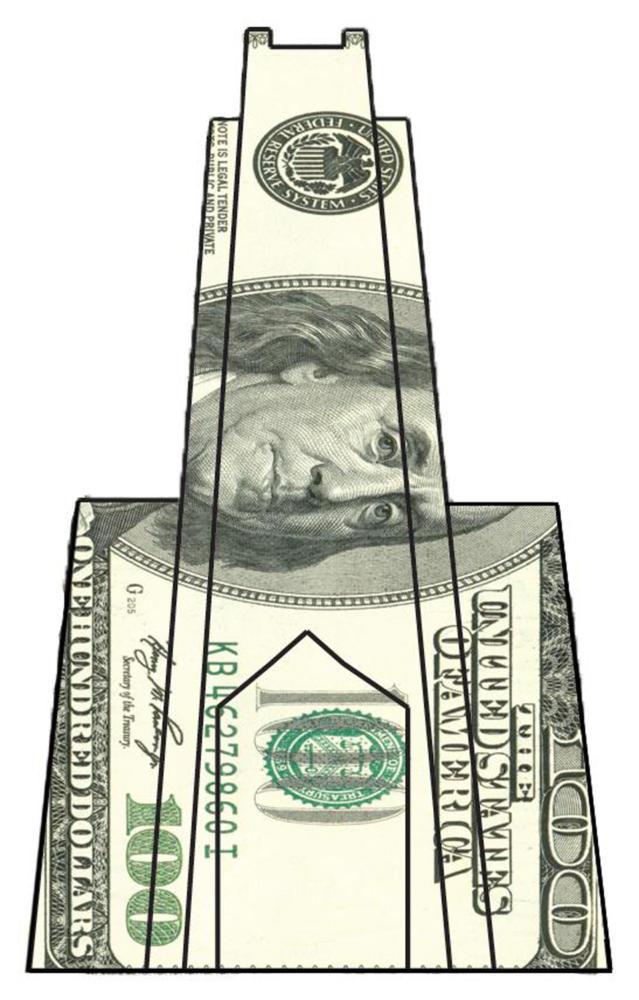The ascension of STEM doesn’t mean humanities are sinking


TPN file illustration
In a world with an ever-increasing number of tech startups and engineering firms, our economy seems destined to be dominated by STEM specialists — which leaves universities scrambling to reinvent their educational offerings.
Colleges are peppering their classrooms with expensive instruments and spending millions on fancy new science labs. Determined to jump on the bandwagon, Pitt has followed suit — expanding its engineering school enrollment by 38 percent since 2010 and announcing the construction of an Energy Innovation Center in 2016.
With these major developments in engineering, it may seem that the humanities are being left behind — but this is not the case. STEM programs need additional funding to be adequately represented in a sea of social science and humanities majors.
According to Niche, a popular website that offers college statistics, more students receive degrees in the humanities than in any other field — engineering sits at a dismal 11th. Acceptance rates at Pitt’s Swanson School of Engineering are 22 percent lower than the Dietrich School of Arts and Sciences. And while acceptance rates have been sharply declining at colleges for more than a decade — mostly due to an influx of applicants — they’ve declined more than twice as much at STEM-oriented schools.
Clearly, students who want to pursue STEM at Pitt and other universities aren’t getting an adequate chance — so Pitt needs to grow its engineering program even more to meet students’ growing desire to attend.
STEM degrees are in high demand for a good reason — they’re lucrative investments. Engineering majors make $16,300 more as a starting salary than humanities majors and enjoy a 2.4 percent lower unemployment rate.
Few things in life cost more than college — Pitt costs $133,000 over four years for in-state students — so a degree needs to have a short-term payoff.
According to Jennie Brand, a UCLA sociology professor who specializes in access to higher education, low and middle-income students think of practical degrees as a necessary building block towards landing a well-paying job and go to college for that reason.
“The actual job payoff becomes more front and center relative to students who have always thought they would go to college,” Brand said in an interview with statistics website FiveThirtyEight.com.
Most higher-income students have the freedom to view college as an intellectual summer camp instead — and the data from the federal education department reflects this. Students at private universities tend to major in the humanities and social sciences — much more so than their peers at public universities.
Majoring in the humanities is a privilege that is in large part limited to the upper class — and “upper class” describes fewer than 15 percent of Pitt students. Because Pitt is a public college, it must cater to the average Pennsylvanian — who can’t afford to pay for an education that won’t guarantee them a well-paying job after college.
Still, it would be foolish to fully eradicate the humanities and social sciences from Pitt and other universities — they give students necessary writing and critical thinking skills which can help STEM majors communicate their scientific findings.
But one glance at Pitt’s arts and sciences curriculum reveals it’s far from balanced. STEM majors at Pitt need to sit through three humanities courses to complete their general education requirements, and humanities majors only need one math class to graduate.
Clearly, Pitt has made a strong effort to integrate arts and humanities into STEM education. But it also needs to incorporate more STEM into liberal arts education to combat scientific illiteracy — an effort that may give humanities majors more technical skills and improve their job prospects.
A liberal arts education is critical for every student to gain a well-rounded bevy of knowledge for their lives and the workforce. But we must not forget that a liberal education also includes science and math. Encouraging more students to study STEM and hiring top-class educators in those fields is no threat to the humanities.
Pitt and other public schools aren’t neglecting the humanities — they’re giving STEM fields the representation they deserve. They’re also giving employers qualified job candidates that the economy desperately needs.
And when Pitt students fully recognize the value of STEM degrees along with humanities gen-eds, they can thrive intellectually while getting ahead on their student loan payments.
Recent Posts
Opinion | Elon Musk has succumbed to the anti-woke mind virus
The idea of a political mind virus is intriguing, and if we chart his personal…
Editorial | The GPT-4 Studio Ghibli trend again reveals a horrible misappreciation for human-made art
Ignoring the potential violations and oversteps of copyright law, the ability to immediately generate images…
Review | ‘Opus’ feels like a rush job
Mark Anthony Green's “Opus” displays a lackluster plot despite brilliant performances. “Opus” leaves a confusing…
‘The new normal’: Pitt athletes reflect on changing landscape of women’s sports
Thanks to Title IX, college women athletes across the country have opportunities most women 60…
Column | This Pirates team doesn’t feel new
Look, baseball is a long season. If there is any sport that you can’t overreact…
Water outage causes ‘panic’ amongst students
A water main break on Tuesday night caused stress and confusion for students living in…